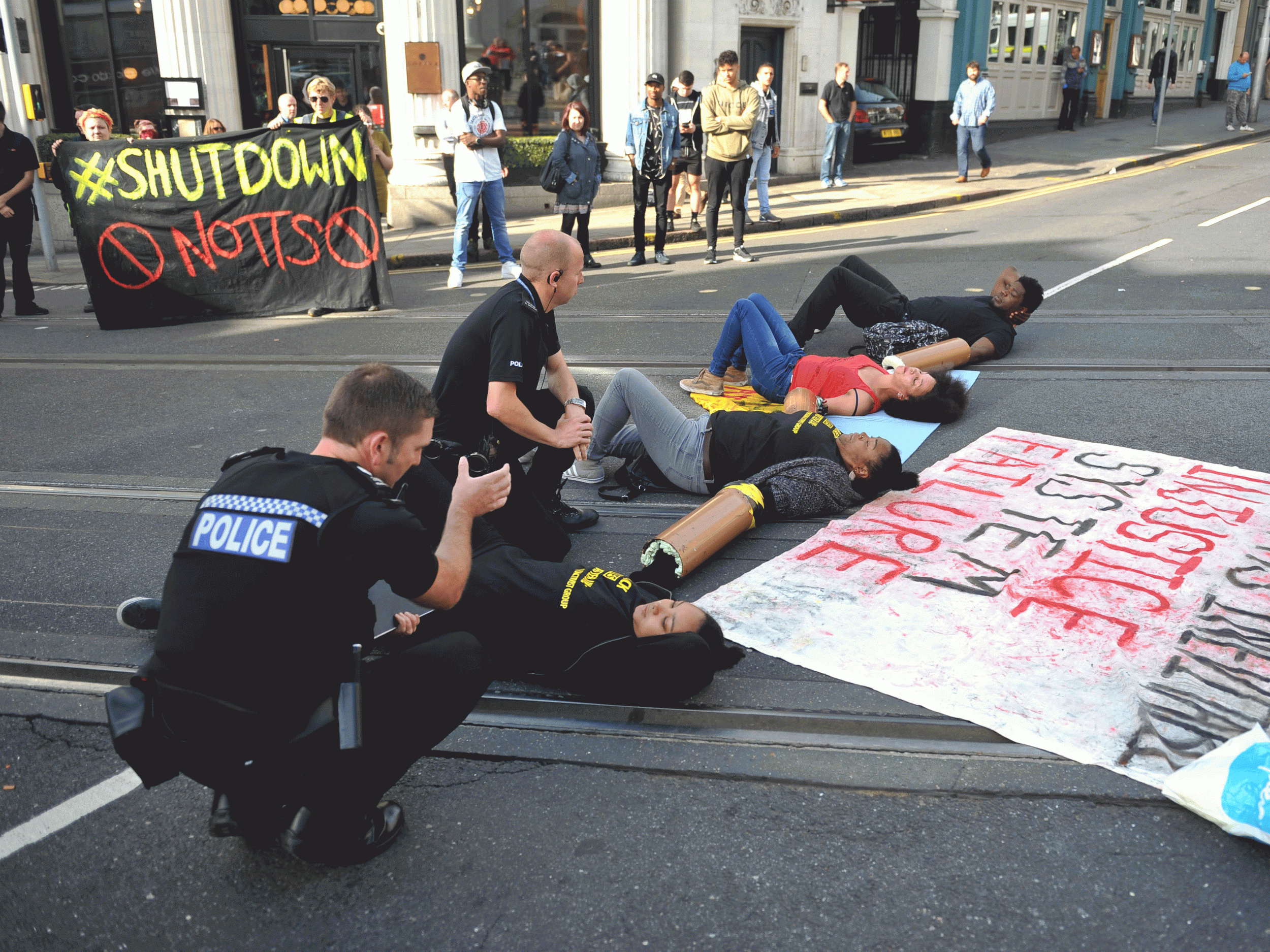We've had enough – we will fight until Britain recognises that black lives matter
The first and last time an officer in this country has ever been convicted for a crime related to a death in custody was 1969

Leon Patterson, 24 years. Joy Gardner, 23 years. Brian Douglas, 21 years. Roger Sylvester, 17 years. Azelle Rodney, 11 years. Sean Rigg, eight years. Kingsley Burrell, five years. Mark Duggan, five years.
These are the excruciating times families have been waiting for justice since contact with the police left their loved ones dead.
Officers wrapped 13ft of tape around Joy Gardner’s face; it took six officers to restrain an ill Roger Sylvester; and an inquest found Azelle Rodney was “unlawfully killed”. Yet to this day not a single person has been held to account for these, or the total other 1,563 deaths in state custody since 1990. According to the Institute of Race Relations, 509 of these deaths were from black and ethnic minorities. There have been 11 BAME deaths from police shootings since 1993 – that’s 18 per cent of the overall total. According to the 2014 UK census, the black community makes up 3 per cent of the overall population.
According to the charity Inquest, between 1990 and 2014 there have been 19 cases where inquests have reached unlawful killing verdicts or state agents have been charged with serious offences such as murder. There have been zero convictions for any of these deaths.
The first and last time an officer in this country has ever been convicted for a crime related to a death in custody was 1969.

Even the US – infamous for the horrific cases of Michael Brown, Eric Garner, Trayvon Martin and now Alton Sterling, Philando Castille and Korryn Gaines – has had more convictions for officer involved deaths in custody than Britain. A recent case was the officer who shot and killed Akai Gurley in 2014.
But the officer who shot dead Mark Duggan, who was unarmed and seen to be surrendering by witnesses, is a free man.
Yet, the British state was quick to hand down harsh and disproportionate sentences to youth who rioted in 2011 in anger at police brutality. Kids were sent to jail for months and in some cases years for stealing bottled water and ice cream.
Black people are 37 times more likely to be stopped and searched than a white person, despite the fact that time and again stop and search is shown to be an ineffective way to address crime. In 2012 1.2 million people were searched and only 9 per cent of these people arrested. This means 91 per cent of the time the police are targeting innocent people with tactics that are invasive, disempowering and dehumanising. And the people they target are much more likely to be black.
Throughout the entire justice system, black people are treated with contempt. We are more likely to be arrested, more likely to be sent to prison, more likely to be given harsher and longer sentences than white people for the same crimes and are more likely to die in police custody. It is clear that in the eyes of the justice system in Britain, black lives do not matter. When Black Lives Matter to the British criminal justice system, then all lives will matter.

This is why we, Black Lives Matter UK, protested today. The families have exhausted every other avenue of conventional justice. We caused disruption so we could be heard. Until there is justice there can be no peace.
But it doesn’t end there. We also protested because in 2016 alone 3,132 migrants have died in the Mediterranean sea; many of these coming from Africa. We protested because since Brexit there has been a 57 per cent increase in reported hate crimes.
We protested because black people are more likely to be in precarious or part-time work, or to be unemployed. We protested because black graduates in work earn 25 per cent less than their white counterparts.
We protested because black kids are nearly four times more likely to be permanently excluded from school.
In every aspect of our lives – coming into the country, walking down the street, sitting in a classroom, earning at work – we are at a disadvantage in Britain. We have had enough. We will fight until in every aspect of our lives it is recognised that Black Lives Matter.
Join our commenting forum
Join thought-provoking conversations, follow other Independent readers and see their replies
Comments
Bookmark popover
Removed from bookmarks